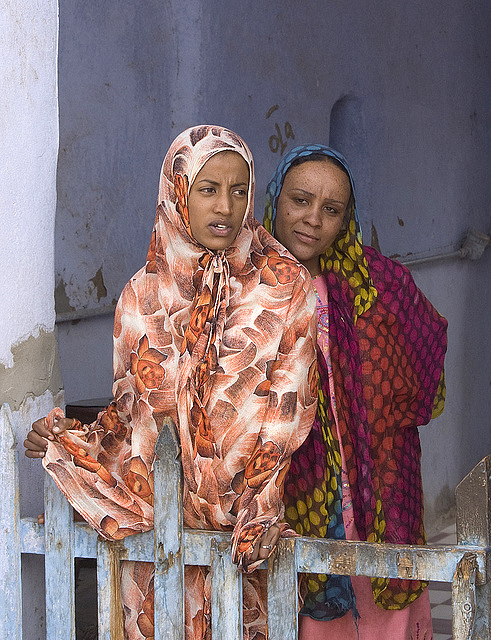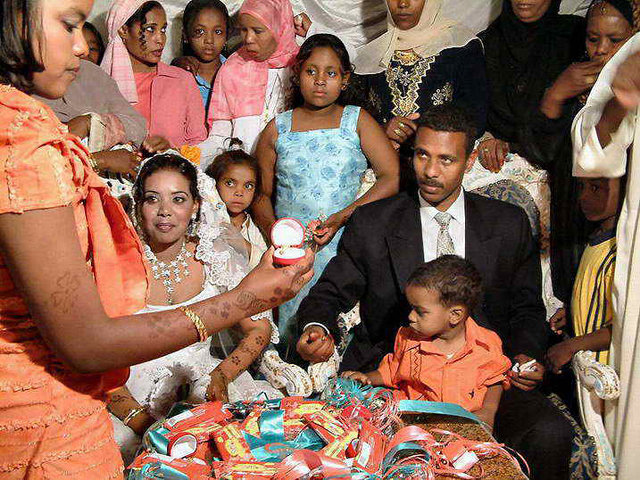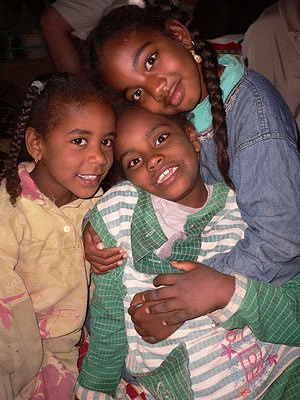While some Nubian women are leaving their families and villages for education and jobs, many remain and continue to follow the old customs—and to marry Nubian men. A feature in the Middle Eastern news and analysis website Al-Monitor last week explored with some Nubian women the options for marriages today.

The journalist pointed out that while Nubian men are usually free to marry whomever they wish, the women tend to not marry outside their society. They are convinced that Nubian men are the only ones who will protect them; they view the prospect of marrying an outsider as daunting.
Asma Mahmoud, who has organized the Alternatives Forum, a group in Cairo, told Al-Monitor that she used to find it very difficult to deal with non-Nubians. She hung out only with her own people and feared getting involved with others. But she eventually learned to make friends with other Egyptians and became more comfortable with them. However, she rejected marriage proposals she received. She said she simply would not feel right about marrying a man who was not a Nubian. Nubians are a unique people, with their own customs and songs, she said. “We believe that our society is complete by itself. It doesn’t want for anything.”
Ms. Mahmoud said that most Nubian women accept the idea that they should remain within their traditional environment, though many of course live outside Nubia with their families. She emphasized that it is important for the women to accept and support the needs of their fathers, brothers, and husbands, even though, in Cairo, they may work in many different situations. In Nubia itself, they do not have many opportunities for employment outside of being wives and mothers, especially since they marry while still young.

She expressed her opinions on other subjects. She feels that Nubians react to the racism that is prevalent against them in Egyptian society with a reverse racism of their own. She added that many young people are rejecting some traditions such as the custom of having extravagant weddings, which can cost 100,000 Egyptian pounds, or US $11,300.
Another Nubian woman, Wahibah Saleh, discussed with Al-Monitor her marriage to a non-Nubian man. She met him in the Cultural Center of Cairo and found him to be compatible. She liked the fact that he had an open mind. She spent a year trying to convince her family that marrying the man was right for her. She first confronted her father, who was adamantly opposed to the marriage. She was under so much stress over the situation that she consulted a psychologist, but in the end she secured her family’s support and married her friend.
Ms. Saleh expressed her general support for the emphasis that Nubians are placing on their women marrying within the group. “Part of the Nubian heritage is collapsing, with the demise of the language, and so the society is attempting to preserve its existence through its customs and traditions,” she said.
She argued that the Internet is changing the attitudes of Nubians about the desirability of women getting an education or even of studying abroad. She told Al-Monitor that there is a lot of integration among men and women within Nubian society. Nubian women are not forced into marriage, and they have the right to remain unmarried, just so they do not marry non-Nubians. She believes that female genital mutilation (FGM) is a crime, unlike marriage within the society, which she accepts.

Speaking of the difficulties of Nubian girls making decisions about the different paths that may be open to them in the future, Ms. Saleh said that “lineage trumps culture, especially for society’s youth.” Basically, Nubian women have to follow what seems best for them and to make their own decisions. They may have to fight their own families if they choose to marry a non-Nubian, but it is important for them to choose the right person.
Fatima Imam, a human rights activist and researcher, told Al-Monitor that the status of women has declined in Nubian society. They used to have a very secure status since they managed the economy. She expressed sadness that the society has become more male-dominated, a result of the anti-women sentiments and discrimination that has developed in Egypt.
She was pressured by her own family about her desire to study abroad. She rejects the notion that Nubian women must marry Nubian men. She blamed the increasing repression of Nubian women on influences from the Wahabi culture of the Gulf, where many people travel to work. She decries FGM, the lack of a feminist Nubian movement, and the requirement that women must wear abayas. The men have brought back repressive ideas that have led, she argued, “to the Islamization of society.”